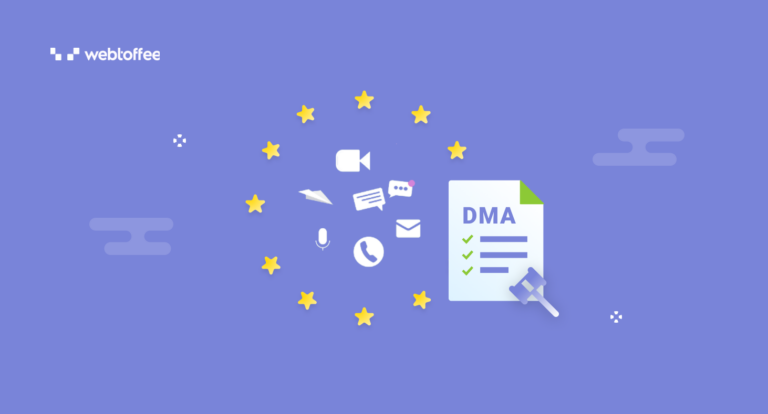The Digital Markets Act (DMA) is a set of regulations introduced by the European Union to promote fair competition in the European digital market. This article delves into a comprehensive overview of the DMA and its impact on businesses.
The Digital Markets Act is a significant regulation in the European Union. It encourages new ventures and small-scale businesses by increasing contestability and fairness in the digital market. The law regulates major companies from influencing the digital market and implements several obligations.
In this article, you will learn about the Digital Markets Act, who will be affected by it, and how to comply with it. If you operate a business within the European Union, this comprehensive guide will help you understand the Digital Markets Act in detail.
Now we have set the context, let’s dive in.
The Digital Markets Act (DMA) is a set of regulations established by the European Union that implements several rules and regulations for online platforms (Facebook, Amazon, Google) that act as “gatekeepers” in the digital economy.
Many businesses depend on these online platforms to promote their products and services, reach out to potential customers, etc. This creates an unfair advantage for large companies in the digital market.
The Digital Markets Act imposes regulations on gatekeepers and prevents them from favoring certain businesses unfairly. This will benefit small businesses and new ventures to compete better in the market.
The act came into force on November 1, 2022, and became applicable on May 2, 2023. The gatekeepers chosen by the European Commission have to comply with DMA obligations by March 6, 2024.
The Digital Markets Act is applicable to companies that are designated as “gatekeepers” by the European Commission. These companies will be subject to the obligations of the DMA.
To be designated as a “gatekeeper,” a company must meet the below criteria:
- The company must have a significant impact on the internal market and should have an annual turnover of €7.5 billion or more in the Europen Economic Area (EEA) for the last three financial years or have an average market capitalization of €75 billion or more in the last financial year and provides the same core platform service in at least three Member States of EU.
- The company must operate a core platform service with more than 45 million end users in the EU and more than 10,000 active business users in the last financial year.
- The company must have met the second criterion consecutively for 3 years.
Companies that meet these criteria are presumed to be gatekeepers, but they can challenge this designation by providing evidence that justifies not being designated as gatekeepers.
On September 6, 2023, the European Commission designated six major tech companies, such as Meta, Alphabet, Amazon, ByteDance, Apple, and Microsoft as gatekeepers and provided six months (until March 6, 2024) for these companies to comply with the act.
These companies have significant influence in various online sectors such as social media, eCommerce, and search engines.
For example,
Google’s search engine boosts an online store’s visibility and drives more traffic to its website. Similarly, advertising platforms such as Google Ads enable businesses to target specific audiences to increase their brand awareness and reach out to potential customers.
These companies must submit a summary detailing the compliance measures they have implemented to the Commission within six months of being designated as gatekeepers.
The Digital Markets Act establishes certain obligations for gatekeepers to enable fair competition in the digital market.
DMA requires gatekeepers to:
- allow users to use third-party apps and app stores.
- allow users to uninstall pre-installed apps or change default settings.
- provide access to third parties to inter-operate with the gatekeeper’s services in specific situations.
- allow their users to access the data that they generate while using the gatekeeper’s platform.
- allow users to unsubscribe from gatekeeper’s platforms and services.
- provide tools and information to advertisers and publishers to verify ads hosted on their platforms independently.
- allow users to promote their offers and close contracts with customers outside the gatekeeper’s platform.
DMA requires gatekeepers not to:
- Use business users’ data to compete against them on the gatekeeper’s platform.
- favor gatekeeper’s own products or services over similar offerings from third parties.
- force app developers to use specific gatekeeper services to be listed in app stores.
- track end users outside of the core platform service for targeted advertising without consent.
Here are some of the major benefits of the Digital Markets Act for businesses in the European Union:
- Businesses that rely on gatekeepers to sell their products and services in a single market will benefit from fair competition in the digital market.
- New ventures and start-ups will get new opportunities to compete and innovate within digital platforms and will be free from unfair terms and conditions that limit their growth.
- Consumers will enjoy a wide range of services to choose from. They will have more options in the market and can directly access these services at fair prices.
- Gatekeepers will retain the ability to innovate and introduce new services. However, they will be prohibited from employing unfair practices towards business users and customers, ensuring a fair playing field for all.
The Digital Markets Act does not apply to small businesses. However, if you are collecting or using your customers’ personal data through gatekeeper platforms or services, you need to obtain prior consent from your customers and share the consent signal with the gatekeeper.
All six designated gatekeepers have introduced new changes and additions to their services and platforms in response to the DMA guidelines.
For example, Google requires publishers using Google AdSense, AdManage, or AdMob to serve ads to EEA and UK users to use a Google-certified CMP by January 16, 2024. Google also updated the Google Consent Mode and introduced Consent Mode v2 with two additional parameters to enhance user privacy.
Businesses and websites that use these platforms and services should be aware of the new changes and take the necessary steps to continue using them.
Here are some general guidelines that websites, publishers, and businesses should follow to continue using the gatekeeper services and comply with DMA.
- Ensure that the gatekeeper platforms and services you are using are in compliance with the DMA regulations. Also, migrate or update to the latest version of the gatekeeper platform or services.
- Obtain prior consent from your users for using their personal data.
- Share user consent signals with the gatekeepers.
- Allow users to restrict data shared with gatekeepers.
- Provide access to business users to their data as per DMA regulations.
- Keep informed and updated with the latest DMA regulations.
Also Read: New Zealand Privacy Act 2020 – An Overview for Businesses

Our GDPR Cookie Consent Plugin is a native consent management platform for WordPress websites. It lets you manage cookie consent for your business website. The plugin is compliant with IAB TCF guidelines and Google’s additional consent requirements. It helps websites to show ads from third party vendors to users while using Google AdSense, Ad Manager, or AdMob.
The plugin also allows you to implement Google Consent Mode v2 on your website. Apart from these, the plugin lets you display a cookie consent banner on your website and obtain consent from your site visitors.
You can block third-party cookies until user gives consent. This cookie consent manager plugin lets you comply with major privacy laws like GDPR, CCPA, CNIl, etc.
The plugin is designed to work within the WordPress ecosystem, so you don’t need to connect with external servers. Any consent related data will be stored on your own server and will not be shared with external services. This helps you ensure complete compliance with privacy laws.
Who Are Gatekeepers in DMA?
Gatekeepers refer to large online platforms that have significant control and influence over the digital economy. These platforms typically have a dominant position in the market and act as intermediaries between businesses and consumers.
The European Commission has designated six major tech companies, such as Meta, Alphabet, Amazon, ByteDance, Apple, and Microsoft, as gatekeepers so far.
What Are the Fines and Penalties for Non-compliance With DMA?
Any designated gatekeeper found in violation of DMA regulations may face fines of up to 10% of the company’s global annual turnover, which will escalate up to 20% for repeated violations. Furthermore, periodic penalty payments of up to 5% of the average daily turnover may also be imposed as additional consequences for non-compliance.
What Is the Difference Between the Digital Services Act and the Digital Markets Act?
The Digital Services Act (DSA) regulates online platforms and services to ensure user safety, accountability, and transparency. It aims to establish rules for digital services, including social media platforms, online marketplaces, and search engines, to address issues such as illegal content, online harms, and advertising transparency.
The Digital Markets Act (DMA) regulates large online platforms designated as “gatekeepers” to prevent them from gaining an unfair advantage in the digital market. It aims to promote fair competition, innovation, and consumer choice by imposing obligations on gatekeepers to ensure fair access, interoperability, and transparency for businesses and end users.
Conclusion
The Digital Markets Act (DMA) is a significant regulation that imposes obligations on large digital platforms known as gatekeepers in the digital market. It helps small businesses and new ventures grow and enables fair competition in the digital market.
If you are using any gatekeeper platforms or services, you need to make sure that they are compliant with the DMA regulations. Also, update to the latest version of the gatekeeper services to continue using them.
You also need to obtain prior consent from your users and customers for using their personal data for tracking and advertising purposes. Using a CMP solution, you can easily manage user consent for your website.
We hope this article has helped you understand the Digital Markets Act and how it will affect your business; if you have any questions, please feel free to ask them in the comments section.
Disclaimer: This article is for informational purposes only and does not represent legal advice. We have no intention of obtaining any kind of attorney-client relationship. If you are looking for legal advice, we recommend that you contact a professional.



